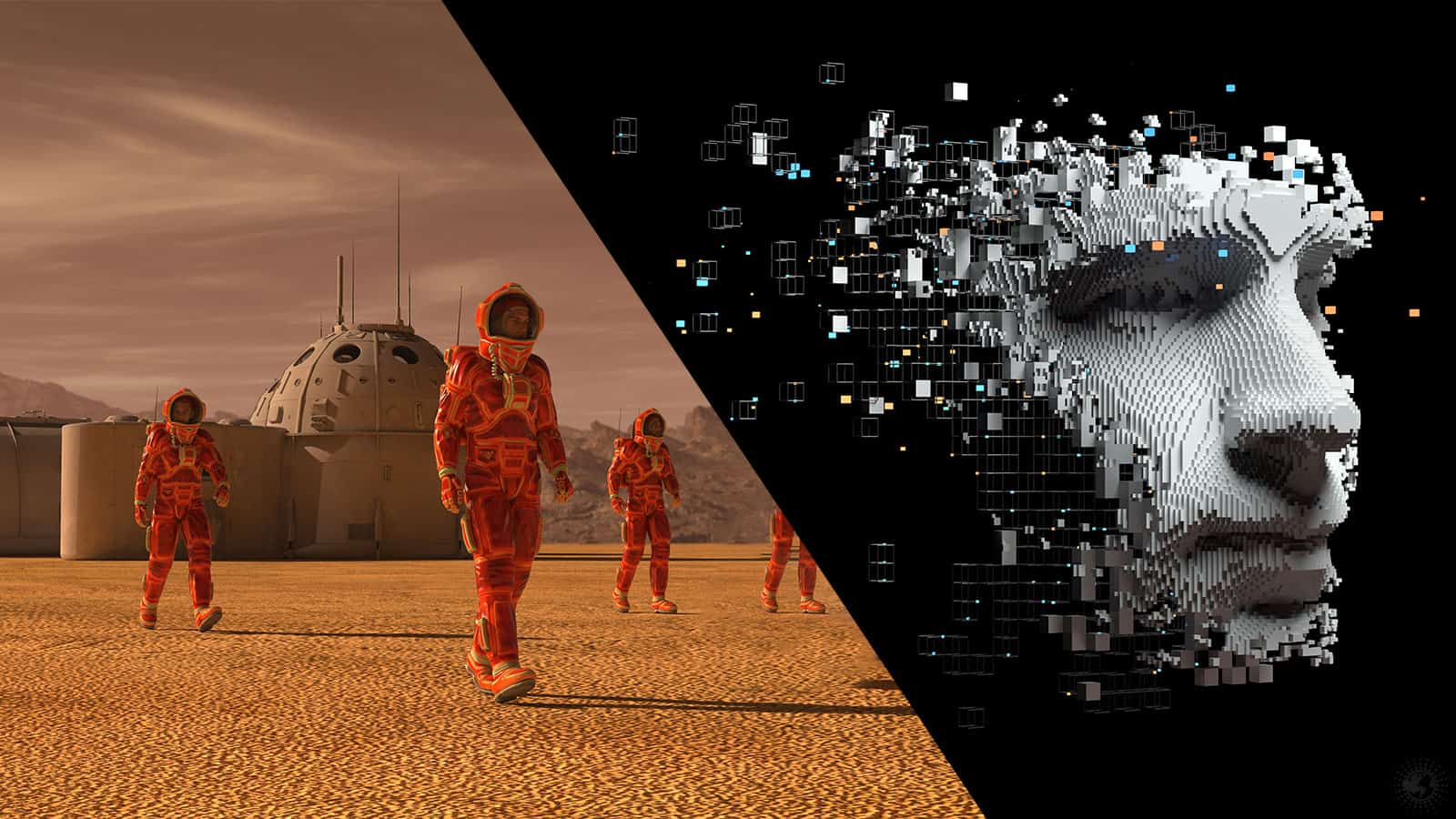For better or for worse, it is human nature to wonder about the future regularly. This mild human obsession – combined with constant technological evolution – has led to the development of an academic field called futurism.
The term futurism was coined by the early 20th-century Italian artist Filippo Thomaso Marinetti. In his 1909 manifesto, Marinetti used the word to “reflect his goal of discarding the art of the past and celebrating change, originality, and innovation in culture and society.”
Today, the work of futurism – or futurology – is more of a technological, rather than artistic, nature. Futurists are individuals who specialize in the systematic exploration of predictions and possibilities about future events. Most commonly, the work of futurists is directed more toward the human experience (e.g., economics, quality of life, and health) as well as scientific and technological endeavors.
So, this article is going to be fun! We’re going to talk about nine predictions that futurists think will happen in the next decade.
9 Predictions About the Future
1 – The First Machine Learning Revolution
Did you know that 90% of all the data available online was created in just the last two years? To of use to individuals and organizations, data must be issued an algorithm – a set of instructions.
For this massive amount of data to be made useful, it is necessary to build machine learning models. Here’s an example of such a model. When you type a word into your phone and options, appear on what word to select. Such a predictive tool is possible because of both algorithms and models.
There’s just one issue: privacy. Current privacy laws prohibit corporations from gathering and acting on private messages (so they say). Thus companies rely much on Federated learning to gather and act on the data received. You can think of federated learning as a sort of massive storage unit of machine learning models capable of churning out valuable information to the end-user.
How can federated learning help? Well, besides making your life more convenient, it may just save it. Patient medical data is extremely sensitive – and sometimes slow to reach the people it needs to reach (like doctors and surgeons, for example). Federated learning can help to bypass the burdensome regulations to help deliver more expedient medical care.
2 – Mass Production of Self-driving Cars
While self-driving cars are available today, their purchase is limited mostly to the wealthy (like that Musk dude from Tesla). But, just like the personal computer revolution before it, supply will skyrocket – and the costs will drop.
We already see this prediction manifested in China, where the company Baidu already faces the challenging task of building a fleet of self-driving cars in Beijing and Shanghai. China already claims about 60 percent of the world’s electric car production, so it’d be no surprise to see the same thing happen in the autonomous vehicle market.
Some futurists predict that we’ll start seeing the initial phases in the development of entirely driverless cities sometime in 2021.
3 – A Future Explosion of eSports
Want to take any guess as to the amount of money the winner of Wimbledon – the world’s most prestigious tennis tournament – takes home? How about the winner of a video game tournament?
Who do you think earned more?
This seems like a no-brainer. I mean, we all know how much money professional athletes make (Case in point: Rafael Nadal, the top money earner in professional tennis, took home north of $16 million in 2019.)
Unless said video game tournament happens to feature Fortnite, arguably the most popular online video game in history. You see, the total purse for the esports competition was $30 million – with the winner taking home a cool $3 mil.
That’s a lot of money. And, as we all know, where people are spending their money, clever minds are already planning to make more of it. These probably include plans to expand further the esports market, which may soon become a multi-billion-dollar industry.
Here’s the kicker: some futurists even think that esports will eclipse traditional sports in popularity.
As for the question posed above? They both took home the same amount – $3 million.
4 – The Rise of Nationalism
The exponential growth of globalization is most evident in the marketplace. Our products are bound to come from just about anywhere and everywhere. The reason for this is free trade, which is only possible through the intimate, time-consuming deliberations of two or more national leaders.
While globalization has most assuredly benefited businesses and consumer choice, it has probably led to prolonged stagnation in wages. The middle class of the United States, while making up over half of the population, accounts for just around a quarter of the nation’s income. After adjusting for inflation, middle-class incomes have fallen since 2000.
If such economic inequality is allowed to continue, as futurists believe will happen, we will feel real consequences. This means a greater proportion of nationalistic citizens – and the election of more nationalistic, protectionist officials.
5 – The Collapse of the Global Economy
Let us hope that this one doesn’t come to fruition. If this COVID pandemic has taught us anything, it’s that the economy is indeed fragile.
Within weeks, nearly a quarter of the nation’s workforce filed for unemployment. The government injected over $2.5 trillion into the economic engine – and it may not be enough. Most economists predict that we’re headed for a deep recession. If not due to COVID, then some other unforeseen catalyst.
The reason why this is a bad thing is twofold. First, nearly all global economic activity is based on the dollar and its value (or lack thereof). So, when the dollar drops, the market shakes up. Second, the health of the United States economy is widely seen as a microcosm of global economic wellbeing.
Without proper preparation, it’s inevitable that some major shakeup of the world economic order occurs. Let us just hope it happens some other time!
6 – Global Political Upheaval
Have you ever heard of the Flynn Effect? In short, the Flynn Effect theorizes that subsequent generations develop higher intelligence than their ancestors. We see evidence of this in IQ test scores, which tend to increase over time.
According to some futurists, we’re about to see more evidence of the Flynn effect: a massive disengagement of ordinary people from the political atmosphere. Again, according to these same folks, it’s only a matter of time until most people wake up and realize that too much involvement in politics is not only ultimately disappointing, but futile.
Recently, the academic journal Constitutional Political Economy published a paper titled “Busy doing nothing: why politicians implement inefficient policies.” The author, Anders Gustafsson, posits that many politicians attempt to appear competent to the electorate through taking ineffective action. As long as you’re doing something – no matter how futile – the public will deem you competent.
Well, some futurists say that the proverbial hall of mirrors is about to come crashing down in a big way.
7 – A Manned Mission to Mars in the Not Too Distant Future
Speaking of Elon Musk. We’ll probably hear of his company Space X’s mission Mars in the next few years. We already know that SpaceX is developing and testing spacecraft capable of withstanding the rough 174-million-kilometer trek to the Red Planet.
2024 will probably be the year, as this will be when the orbits of Earth and Mars best align for a more tranquil interplanetary voyage. Also, a private company will likely oversee this endeavor, not NASA.
8 – Instant Fixes For Mental Health Disorders
In 2013, the United States government announced the BRAIN Initiative. This ambitious program seeks to map out all activity within the human brain.
Similar to how the Genome Project led to (at the time) cutting-edge treatments such as gene therapy, the resultant BRAIN Initiative research may just provide similar breakthroughs. Futurist scientists believe that the outcomes of the BRAIN Initiative will lead to the revolutionary diagnosis and treatment for mental health disorders.
What would this look like? Well, it’s mostly speculation at this point. However, an instant scan and diagnosis for mental health disorders like PTSD and depression are not out of the question.
 9 – Resurrection of Extinct Species in the Future
9 – Resurrection of Extinct Species in the Future
Okay, so who just thought of the movie Jurassic Park? *Raises hand*
Before we get all excited (or terrified) about the resurrection of the T-Rex and Velociraptor, let’s gain some perspective. For a long time, scientists have been pondering the possibility of bringing back extinct creatures. It was only recently, however, that the development of technologies in the fields of cloning and genetic engineering have made it seem like a possibility.
In this decade, we’ll probably see the resurrection of recently extinct animals like the dodo bird. In the more distant future, we could very well see the rebirth of prehistoric creatures.
I still don’t buy into the idea of opening up a real Jurassic Park, however.




















